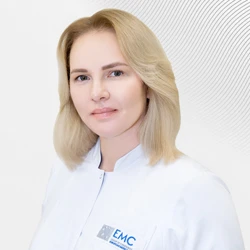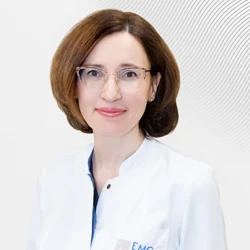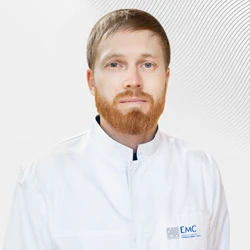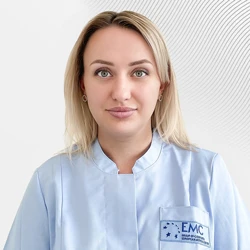Vesicoureteral reflux
This pathology is most often diagnosed in children under 2 years of age.
CAUSES OF PMR IN CHILDREN
In many cases, the cause of reflux in a child is inflammation. As a result, the elasticity of the tissues of the ureter's mouth is lost, and the valve stops closing.
PMR often occurs due to congenital anomalies of the cystic ureter.
High pressure in the bladder can provoke the development of pathology if the valve is not fully closed.
IS PMR DANGEROUS FOR A CHILD
Reflux is dangerous due to its complications. If the disease is not diagnosed in time and effective treatment is not provided, renal function may be impaired. Then the liquid is poorly excreted from the body, and an accumulation of toxins occurs. As a result, pyelonephritis may develop.
Due to a violation of the outflow of urine and the inflammatory process in the kidney, scarring of the kidney tissue occurs and its operability is lost.
Sometimes scarring of the tissue is accompanied by an increase in blood pressure. In such cases, conservative therapy cannot cope with increased blood pressure, so it is necessary to remove the kidney.
SYMPTOMS OF VESICOURETERAL REFLUX IN CHILDREN

Depending on the degree (stage) of vesicoureteral reflux in children, the symptoms may be stronger or weaker.
Since the disease most often affects young children, who cannot always talk about their complaints and poor health, parents should pay special attention to the child's health.
Fever without signs of colds and flu (runny nose, sore throat, cough) is the first symptom that should alert parents.
General weakness, which appears due to increased blood pressure, also signals pathology.
At the same time, the child may experience pain in the lower back when urinating.
According to the results of the examination, children with vesicoureteral reflux are diagnosed with elevated levels of white blood cells in the blood and urine and ESR in the blood – the main signs of inflammation in the body.
DIAGNOSIS OF VESICOURETERAL REFLUX IN CHILDREN
The results of laboratory tests help the doctor to suspect acute pyelonephritis and PMR in a child. Next, the small patient must undergo an instrumental examination.
The main stage of reflux diagnosis is cystography. This study allows you to visualize the reverse flow of urine from the bladder into the ureter and kidney.
Since reflux is a dynamic process that can be of varying duration and intensity and occurs with different filling of the bladder, it is important to properly conduct this study for the diagnosis of PMR.
Advantages of cystography in EMC:
-
The EMC study is conducted by pediatric urologist. He immediately evaluates the information content of the images and explains the results in detail to the parents.
-
Cystography is performed in dynamic video recording mode on a digital X-ray machine. This helps the doctor to fully visualize and record the process of filling and emptying the bladder, makes it possible to review the full recording of the study and not miss even the shortest reflux.
-
If necessary, for example, if the child is very young or is afraid of the study, cystography under sedation is possible in the EMC. This will help the child to relax and calm down, and during the procedure he will not experience discomfort and negative emotions. Before performing cystography under sedation, the anesthesiologist will definitely consult and determine the dose of the sedative.
TREATMENT OF VESICOURETERAL REFLUX IN CHILDREN IN EMC
Clinical recommendations for choosing a treatment method are to determine the cause of vesicoureteral reflux in children.
In many cases, if inflammatory diseases have led to the development of reflux, conservative treatment of these pathologies is sufficient. If it is not effective or reflux is caused by anatomical defects, surgery is performed.
The specialists of the European Medical Center know all modern methods of surgical treatment of PMR in a child.
Endoscopic surgery for vesicoureteral reflux is a common method that eliminates reflux in more than 85% of cases. The essence of such an operation is to restore the impaired function of the ureter by injecting a liquid polymer (a volume-forming drug) under its outlet.
Advantages of endoscopic reflux correction in EMC:
-
We work with any volume-forming drugs that are approved for use in the world. At the stage of pre-surgical treatment, we discuss with parents all aspects of their use.
-
Our specialists have completed international training in endoscopic correction of PMR.
EMC specialists also perform reconstructive plastic surgery to correct vesicoureteral reflux using open, laparoscopic or robotically assisted methods.
The availability of the latest equipment and all modern diagnostic methods in the clinic (high-precision ultrasound, radionuclide studies, cystography on modern high-resolution devices, urodynamic studies) helps doctors to give a full-fledged clinical assessment of the patient's health and to carry out exactly the treatment that is effective in a particular case.
Surgery for vesicoureteral reflux in a 2-year-old child
Why the EMC
The first and only clinic in Russia, created in the image of the world's leading clinics
EMC is a multidisciplinary center offering patients a high level of medical services and a personalized approach
Worldwide recognition and awards
 Learn more
Learn more
Worldwide recognition and awards
 Certificates and licenses
Certificates and licenses
Make an appointment for a consultation
Specify your contacts and we will contact you to clarify the details
Reviews
and new products of the EMC



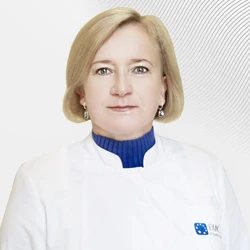
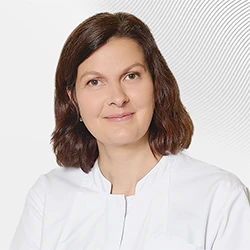


.webp)
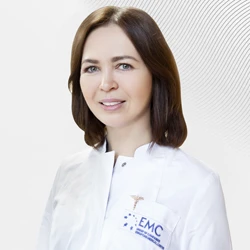


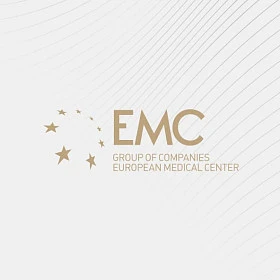
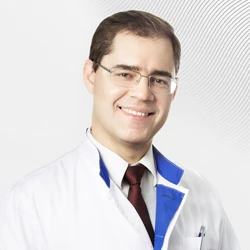
.webp)
